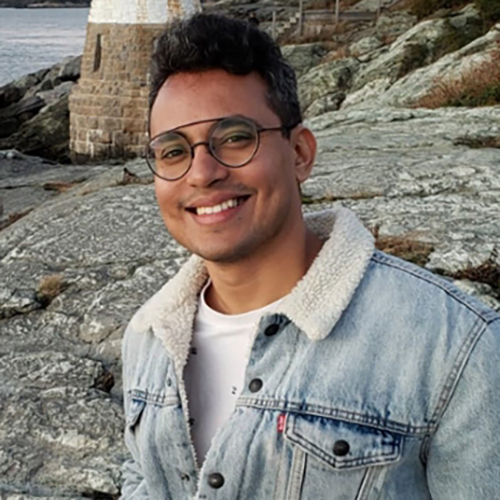 What made you want to apply to the MSBA program at Brandeis?
What made you want to apply to the MSBA program at Brandeis?I learned a little bit about data science while I was getting my master’s degree in genetics. Up until then, I’d been doing wet lab research — I was working with 200 mice and we used to think that was a large data set. We were doing a lot of our analysis in Excel and I knew this method was soon going to be obsolete for our purposes, so I knew I needed to rebrand myself as an analyst. I got interested in bioinformatics and taught myself to code, and then I started looking at positions as a biological data scientist but decided I needed more business and managerial knowledge. I knew people who were already in the MSF and MA programs at Brandeis. As soon as I found out they were starting an MSBA program, it just made sense for me to apply.
I got an internship at the Center for Translational Data Science (CTDS) at the University of Chicago because I’d done an independent study in natural processing language with Professor Arnold Kamis. I had to hit the ground running and it really helped that I had that background. CTDS builds data solutions for government agencies and I had to come up with a natural processing language solution for data harmonization.
One thing that is so unique about Brandeis and especially the International Business School is how collaborative and interdisciplinary it is. I met Professor Ian Roy, founder of the Maker Lab, and I’ve been working with him and Professor Kamis on a machine learning solution to classify 3D printer failure using audio signals. Ian can tell just by the sound that a printer isn’t working correctly, and we want to get that information as early as possible so we can stop the printer and not lose an entire project. The great thing is I get to play with 3D printers.
Then I was looking for a campus job as a data analyst and wound up working in a politics lab with Professor Jytte Klausen. She’s using large amounts of data on religious extremists to try to predict if someone might become involved in a certain type of terrorist act. I truly learned the power of data science in situations like this. It’s a great opportunity to apply the things I’ve learned and see if my skills are truly translational.
I’m hoping to work as a data scientist, bioinformatician, or research programmer. I want to be peripheral to academia but not right in it. This field and its applications are moving very rapidly and it’s hard to predict the future — every month there’s something new.
Program
Master of Science in Business Analytics (MSBA)
Employer
Center for Translational Data Science
@BrandeisBusiness Instagram
View this profile on InstagramBrandeis Intl. Business School (@brandeisbusiness) • Instagram photos and videos